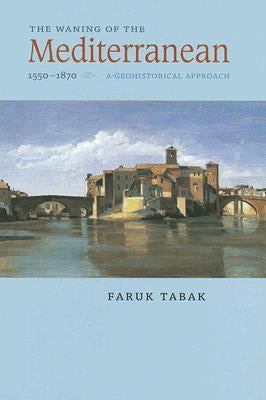Before you leave...
Take 20% off your first order
20% off
Enter the code below at checkout to get 20% off your first order
Discover summer reading lists for all ages & interests!
Find Your Next Read

2008 Outstanding Academic Title, Choice Magazine
Conventional scholarship on the Mediterranean portrays the Inner Sea as a timeless entity with unchanging ecological and agrarian features. But, Faruk Tabak argues, some of the traditional and olden characteristics that we attribute to it today are actually products of relatively recent developments. Locating the shifting fortunes of Mediterranean city-states and empires in patterns of long-term economic and ecological change, this study shows how the quintessential properties of the basin--the trinity of cereals, tree crops, and small livestock--were reestablished as the Mediterranean's importance in global commerce, agriculture, and politics waned.
Tabak narrates this history not from the vantage point of colossal empires, but from that of the mercantile republics that played a pivotal role as empire-building city-states. His unique juxtaposition of analyses of world economic developments that flowed from the decline of these city-states and the ecological change associated with the Little Ice Age depicts large-scale, long-term social change. Integrating the story of the western and eastern Mediterranean--from Genoa and the Habsburg empire to Venice and the Ottoman and Byzantine empires--Tabak unveils the complex process of devolution and regeneration that brought about the eclipse of the Mediterranean.
Faruk Tabak (1954-2008) was Erteg? Assistant Professor of Modern Turkish Studies at Georgetown University.
Thanks for subscribing!
This email has been registered!
Take 20% off your first order
Enter the code below at checkout to get 20% off your first order